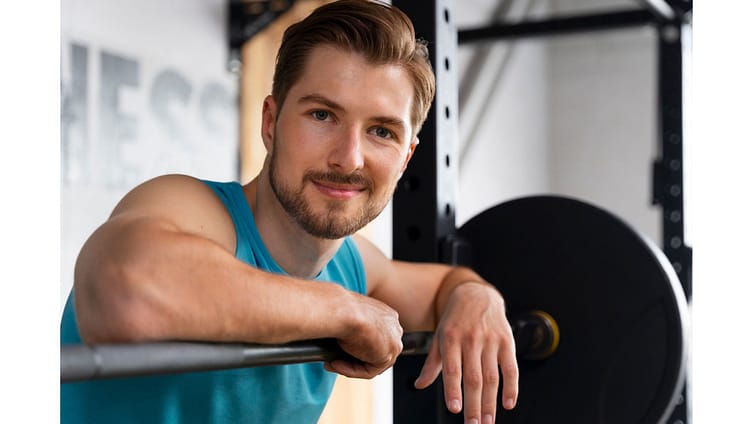Table of Contents
ToggleWhy do squats make you feel sleepy?

Muscle Engagement and Blood Flow
Squats are a compound exercise that engages multiple muscle groups, including the quadriceps, hamstrings, glutes, and lower back. When you perform squats, your body directs blood flow to these large muscle groups to provide oxygen and nutrients, which can temporarily divert blood away from your brain, making you feel a bit drowsy.
Hormonal Response
Another factor contributing to post-squat sleepiness could be the hormonal changes triggered by intense exercise. Squats, being a high-intensity workout, prompt the release of endorphins, dopamine, and serotonin. These hormones promote relaxation and a sense of well-being, which might induce sleepiness.
Energy Expenditure
Intense physical activity like squats can also burn a significant amount of energy, leading to fatigue. The body’s response to this expenditure can be a feeling of tiredness or sleepiness.
Shared Experiences
If squats make you feel sleepy, rest assured, you’re not alone! Many individuals report feeling tired or even sleepy after a rigorous squat session. Checking online fitness forums or communities often reveals numerous accounts of people experiencing post-squat sleepiness.
Others’ Perspectives
It’s intriguing to explore how different individuals react to the same workout. Some might feel energized and invigorated after squats, while others could experience fatigue and a desire to rest. This diversity in responses stems from individual differences in fitness levels, body compositions, and overall health.
Coping Strategies
To combat post-squat sleepiness, some people incorporate strategies like:
Cooldown Exercises:
Adding stretching or light cardio after squats can help regulate blood flow and reduce drowsiness.
Nutritional Support:
Consuming a balanced meal or a snack rich in protein and carbohydrates post-workout might replenish energy levels.
Hydration:
Ensuring adequate hydration before, during, and after exercise can alleviate feelings of fatigue.
So.
Feeling sleepy after squats is a familiar phenomenon, influenced by muscle engagement, hormonal responses, and energy expenditure. While it’s a shared experience for many, individual reactions can vary. Exploring coping strategies like cooldown exercises, proper nutrition, and hydration can help manage post-squat sleepiness effectively.
So, if squats make you feel sleepy, you’re not alone! Embrace your body’s response, listen to its cues, and consider adjusting your post-workout routine to suit your needs.
Let’s further explore this intriguing connection between squats and feeling sleepy.
Deeper Insights into Post-Squat Sleepiness
Physical Exertion and Relaxation
The physical demands of squats, especially when performed with weights or at high intensity, can strain your muscles, leading to a subsequent feeling of relaxation. This sensation of relaxation, coupled with increased blood flow to worked muscles, can contribute to a sense of fatigue or sleepiness.
Individual Variations
Individual variations play a crucial role in how squats affect our bodies. Factors like fitness levels, sleep quality, hydration, and nutrition significantly impact how one responds to exercise. For some, squats might boost energy levels, while for others, it could induce fatigue.
Sleep Quality and Exercise
Interestingly, the timing of exercise can also influence how it affects sleep. While regular exercise is known to improve sleep quality overall, intense workouts close to bedtime might disrupt sleep patterns for some individuals. Squats, being a demanding exercise, can potentially trigger a state of relaxation that, if timed before bedtime, could contribute to feelings of sleepiness.
Managing Post-Squat Sleepiness
Timing of Workouts
Considering the timing of your workouts might help manage post-squat sleepiness. If feeling sleepy after squats interferes with your daily routine, try scheduling your workouts earlier in the day to allow your body more time to recover and regain energy.
Post-Exercise Routine
Developing a post-exercise routine tailored to your body’s needs can make a significant difference. This routine might include a mix of stretching exercises, proper hydration, and a well-balanced meal or snack to aid in recovery and replenish energy levels.
Sleep Hygiene
Maintaining good sleep hygiene practices, regardless of exercise, can improve sleep quality. Establishing a consistent sleep schedule, creating a comfortable sleep environment, and practicing relaxation techniques can enhance overall restfulness.
Final Thoughts
Feeling sleepy after squats is a common occurrence, attributed to factors like muscle engagement, hormonal responses, and individual variations in how our bodies react to exercise. Understanding these factors can help individuals manage post-squat sleepiness effectively by adjusting workout timing, incorporating a personalized post-exercise routine, and prioritizing overall sleep hygiene.
Remember, if feeling sleepy after squats doesn’t disrupt your routine and aligns with your body’s recovery needs, it might just be a natural response to your workout—a sign that your body is working hard and deserves some rest!
Feel free to embrace this post-squat relaxation and use it as an opportunity to unwind and recharge.
External Resources
To delve deeper into the relationship between exercise and sleep, here are some insightful resources:
Sleep Foundation – Exercise and Sleep
National Sleep Foundation – How Exercise Affects Sleep Quality
PubMed – The Effect of Exercise Training on Obstructive Sleep Apnea and Sleep Quality
Comparison tabular
Here’s a tabular comparison summarizing the key aspects of feeling sleepy after squats:
| Aspect | Why Squats Make You Sleepy | Individual Variations |
|---|---|---|
| Muscle Engagement | Engages multiple muscle groups, diverting blood flow. | Varies based on fitness levels, hydration, and nutrition. |
| Hormonal Response | Triggers endorphins, dopamine, and serotonin. | Sleep quality and overall health impact individual response. |
| Energy Expenditure | Burns significant energy, leading to fatigue. | Varies among individuals – some feel energized, others tired. |
| Physical Exertion | Strains muscles, induces relaxation. | Responses range from relaxation to increased fatigue. |
| Sleep Quality | Might improve overall sleep quality. | Timing of exercise can impact sleep patterns. |
| Managing Strategies | Adjust workout timing, post-exercise routine, sleep hygiene. | Tailored routines considering individual body’s needs. |
This table showcases the primary reasons behind feeling sleepy after squats along with individual variations and suggested strategies to manage post-squat sleepiness. Understanding these aspects can help individuals navigate and adapt their routines for optimal recovery and rest.
Wrapping up
Feeling sleepy after squats is a shared experience among many fitness enthusiasts. It’s a complex interplay of physiological responses, including muscle engagement, hormonal changes, and individual variations in how our bodies react to exercise.
Remember, if squats leave you feeling a bit drowsy, it’s perfectly normal and doesn’t necessarily indicate a problem. Embrace this post-squat relaxation as a sign that your body is working hard and deserves some well-earned rest.
Managing post-squat sleepiness involves understanding your body’s cues, adjusting workout timings, incorporating personalized recovery routines, and maintaining good sleep hygiene practices. By listening to your body and adapting your fitness routine accordingly, you can make the most out of your workout while ensuring adequate rest and recovery.
So, the next time squats make you feel sleepy, embrace it as a signal to relax, rejuvenate, and let your body reap the benefits of your hard work!
Stay active, listen to your body, and enjoy the journey towards a healthier, stronger you!

Hey there, it’s Mike Rrsq, the Editor-in-Chief over at Jsquat.com, and I’m absolutely obsessed with all things squat fitness! I’ve been lucky enough to get some serious recognition for my work in this field. With a solid background in the fitness and wellness industry, I’ve been there right from the get-go, helping shape this website into what it is today.
You see, I’m not just the boss around here; I’m also a passionate contributor. I love sharing my insights through my articles, and trust me, they’re not your run-of-the-mill stuff. Each piece I write is a labor of love, filled with my expertise and real-world experience in the fitness universe. So, if you’re into fitness and looking for some inspiration, you’re in the right place!
Related Posts
- Are squats with barbells beneficial for enhancing functional fitness
Absolutely. Squats with barbells are a cornerstone exercise for functional fitness. They engage multiple muscle…
- How Importance is Squats in Your Fitness Regimen
In the realm of fitness, certain exercises stand out for their profound impact, and squats…
- Are Bodyweight Squats a Sign of Commitment to Health and Fitness
Commitment to health and fitness often manifests in various ways. Bodyweight squats, a fundamental exercise,…
- Should 88-year-olds incorporate squats to enhance overall health and fitness
Squats can be beneficial for older adults, including those who are 88 years old, to…
- Will squats ruin my running
Fitness enthusiasts often encounter conflicting advice that leads to perplexing questions like "Will squats ruin…
- How Many Squats in a Row is Good? Crush Your Fitness Goals with These Tips!
The number of squats in a row that is considered good varies depending on your…
- Is incorporating weight into squats recommended for overall fitness in seniors over 55
Absolutely. Squats, when done correctly and with proper guidance, can be beneficial for seniors over…
- Should Squats Make you feel a sense of community in the fitness world
Squats can certainly foster a sense of community within the fitness world. Let's dive into…

